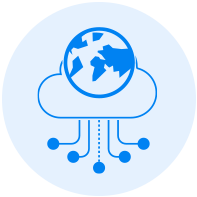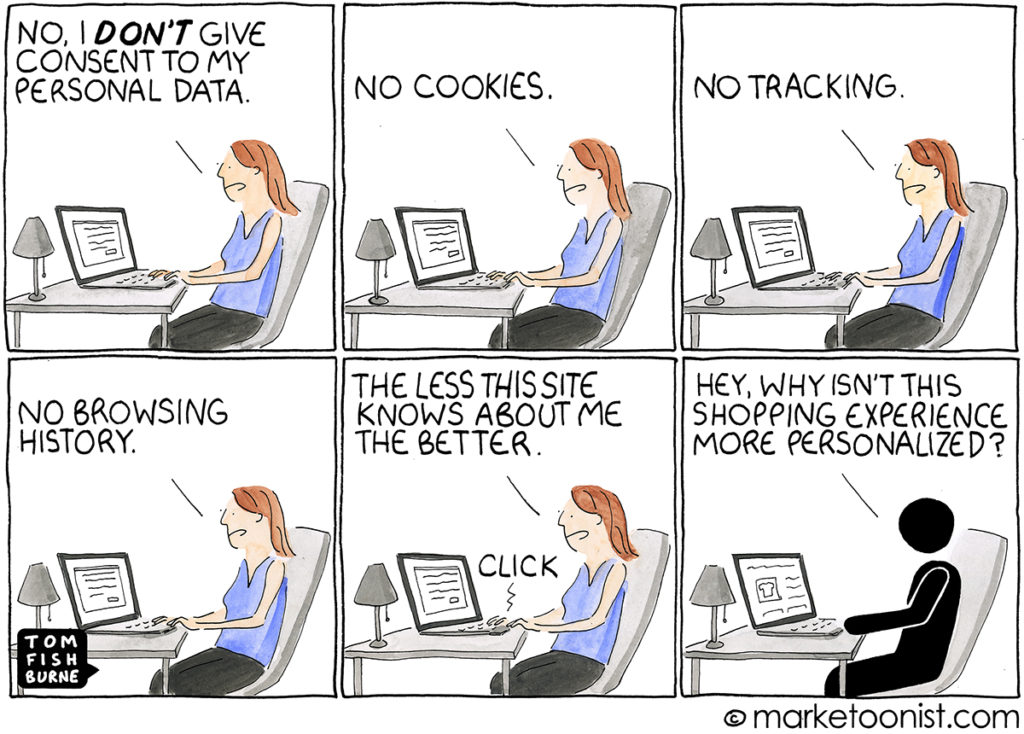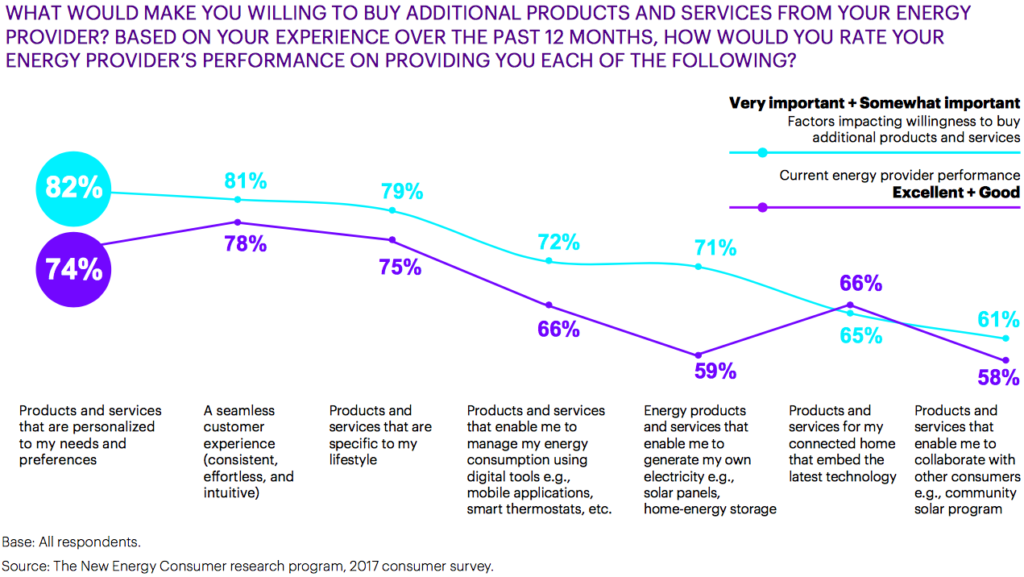
Why Solar Customers Want and Expect Personalization
Amy Hou | September 14, 2018 | Energy & Sustainability
Solar customers are in a catch-22. Like most consumers, they want a hyper-personalized shopping experience, so that they can easily find the products and services that best fit their needs. But at the same time, they’re concerned that companies aren’t being transparent about what they do with the data they collect to enable personalization.
So, how do we give solar customers the experience they want without violating their trust? Let’s look at the evidence.
Solar customers aren’t unique
Solar isn’t the niche market it used to be. Sure, at first, it was restricted to high-income early adopters and clean energy evangelists, but by now, it’s quickly becoming an affordable, mainstream product. As such, today’s solar customers are looking for the same things that all customers are looking for: hyper-personalization.
Accenture found in 2016 that 92 percent of surveyed energy consumers would be more satisfied with their overall customer experience if it were more personalized. Moreover, 79 percent highly value products specific to their lifestyles. That’s why connected home energy products like Nest are so popular — they provide personalized recommendations to save energy and money based on each home’s individual, day-to-day patterns of behavior.
In order to gather consumer insights and create more personalized products, Accenture recommends incorporating new data sources. With historical electric bill data, for instance, solar providers can show each prospect exactly how much they’ll save on their installation over time, based on their individual energy usage and cost patterns.
Personalization balanced with privacy
Of course, more data sources come with more data security concerns. The good news is: solar providers have a head start on building consumer trust. 74 percent of those surveyed by Accenture trust their energy provider to protect their personal data.
However, solar providers still need to be cognizant of the same data privacy issues as everyone else. In our recent survey, we discovered that the vast majority of consumers prefer to share their data through a secure, online system.

The key to maintaining trust is to be transparent with solar customers as to how their data will be used. Using a secure online system that only collects data after express consumer permission is given — without disrupting the user experience — will enable a personalized, trustworthy customer experience, drive higher customer satisfaction, and ultimately more sales.
Personalization at scale
Having a strategy behind personalization is all well and good, but it also needs to happen at scale. Gathering and managing these additional data sources can be a daunting task, especially for a regional installer. Fortunately, solar installers of all sizes can easily access the data they need without building any in-house development capabilities — simply by taking advantage of a plug-and-play toolkit like the Urjanet Solar Quickstart program.
The Quickstart program allows solar customers to rapidly and securely link their utility accounts directly from the utility provider to the solar installer. With this link in place, installers can access electric bill data on demand, create accurate, tailored proposals, and give their customers the personalized experience they want and expect.
To learn more about the Quickstart program, check out the full announcement. And to learn how to get started with a risk-free trial, reach out to one of our experts.
You might also be interested in:
- Infographic: 5 Ways to Accelerate Solar Sales
- 3 Ways to Enhance the Accuracy of Solar Project Analyses
- Data and Solar: A Horse-and-Carriage Marriage
If you like what you’re reading, why not subscribe?
About Amy Hou
Amy Hou is a Marketing Manager at Urjanet, overseeing content and communications. She enjoys writing about the latest industry updates in sustainability, energy efficiency, and data innovation.
You May Also Like
Support Business Continuity by Embracing ESG
Honor Donnie | March 18, 2022 | Energy & Sustainability


